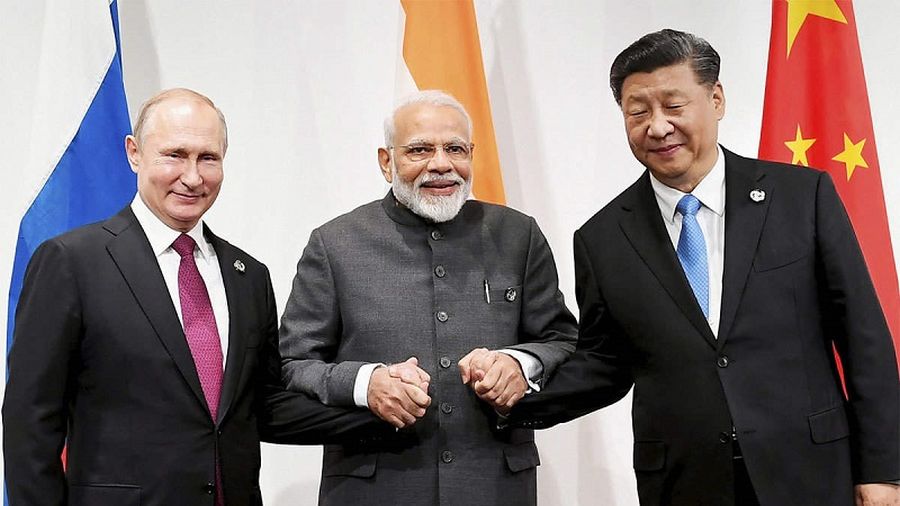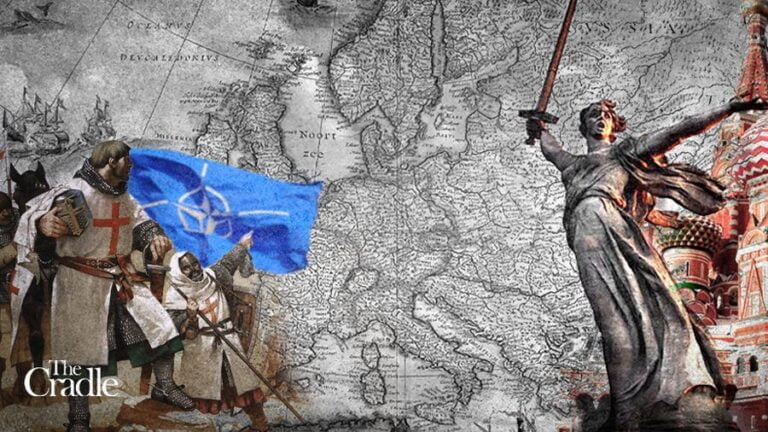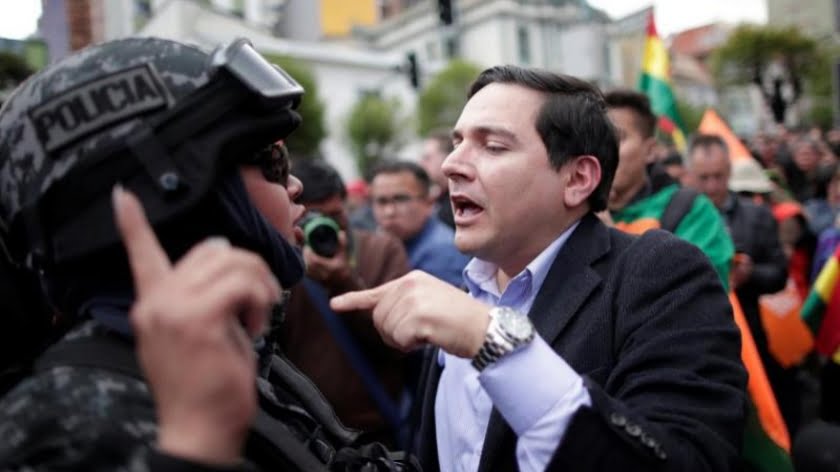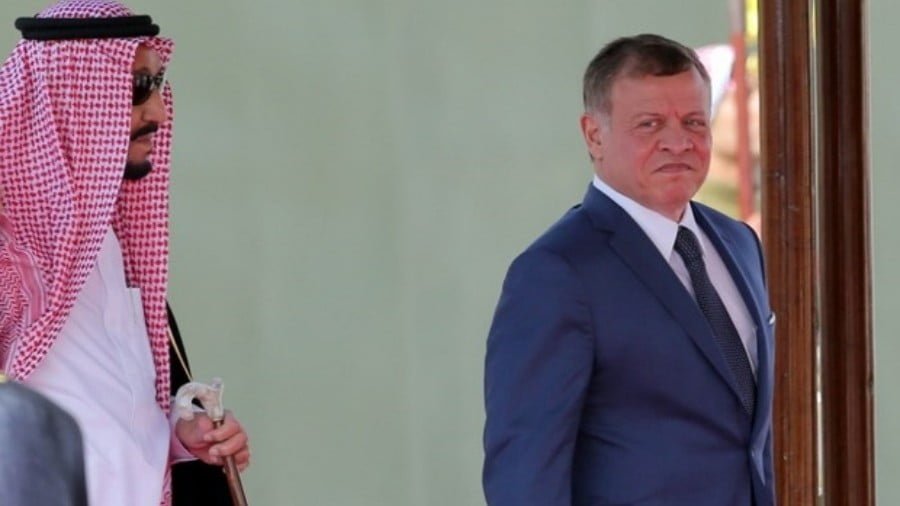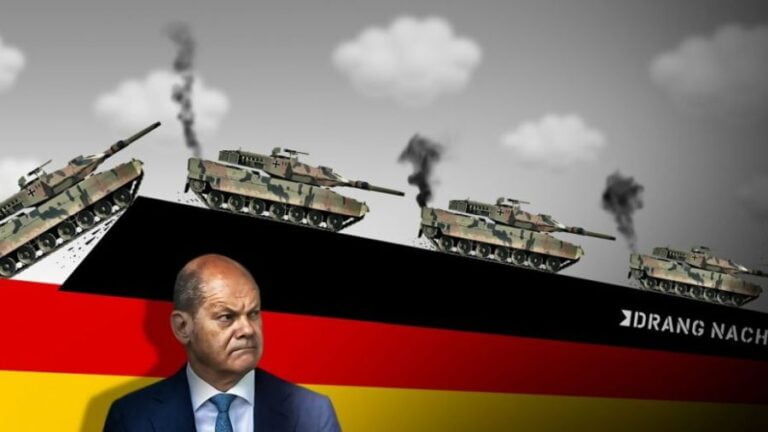The Proposed Russia-India-China Summit Might Be the Most Important Yet
President Putin should prioritize ensuring that four areas of strategic convergence are placed on the agenda of the proposed meeting between the Russian, Indian, and Chinese heads of state.
Russian presidential aide Yuri Ushakov disclosed last Wednesday that his country’s leader discussed the possibility of an upcoming heads of state summit between himself, his Chinese counterpart, and Indian Prime Minister Modi during his latest video conference with President Xi. This gathering would be their most important yet if it comes to pass due to the global geostrategic context. The Russian-India-China (RIC) format is the core of the BRICS and SCO multipolar frameworks in which all three countries participate. It’s also the most pivotal axis of stability in Eurasia.
President Putin’s recent trip to India saw these two Great Powers entering into a de facto hemispheric-wide “balancing” alliance aimed at exploring the potential for jointly leading a new Non-Aligned Movement (“Neo-NAM”) that could result in the emergence of a third pole of influence in today’s increasingly bi-multipolar world order. At the same time, Russia is strengthening its grand strategic cooperation with China in parallel with negotiating a so-called “non-aggression pact” with the US. The end result of these three major moves is that the balance of interests and power in Eurasia is shifting.
“The 18-Month-Long Sequence Of Complications In Indian-American Relations” brought about by the US’ unilateral attempts to bully its new military-strategic partner into becoming its latest vassal state unwittingly prompted that South Asian country to recalibrate its multi-alignment policy towards Russia. That in turn is creating the structural conditions for the Kremlin to responsibly regulate the Chinese-Indian rivalry that the fading unipolar hegemon has hitherto actively exploit in order to divide and rule Eurasia.
The end result is that not only have Russia and India realigned their complementary supercontinental “balancing” acts, but there’s also a distinct possibility of drastically reducing Chinese-Indian tensions in the coming future with a view towards enhancing multilateral cooperation between all three Great Powers. That would be mutually beneficial for all of them, but it still requires some hefty diplomatic work to achieve. Therein lies the importance of Russia taking the lead to bring this about through President Putin’s personal diplomacy with the Chinese and Indian leaders.
An unexpected window of opportunity has opened to at the very least indefinitely freeze, if not gradually resolve, those two Asian Great Powers’ multiple disputes through a pragmatic series of possibly Russian-mediated compromises. Towards that end, Russia can also propose four geographic areas in which they could economically cooperate in order to build the trust that’s required in order to facilitate such an outcome. These are the Russian Far East, Afghanistan, Syria, and Ethiopia, all of which would immensely benefit from these Great Powers working more closely together.
The first-mentioned area is the only peaceful one of these four but in urgent need of foreign direct investment in order to make it a competitive piece of real estate in the Asia-Pacific. Neighboring China has already taken the initiative there due to obvious geographic reasons related to reduced transport costs and thus comparatively higher returns on investment while India unprecedentedly extended a $1 billion line of credit to this Russian region in September 2019 during Prime Minister Modi’s attendance at the Eastern Economic Forum in Vladivostok as President Putin’s guest of honor that year.
These three Great Powers haven’t yet trilaterally cooperated in any significant investment plan so it’s imperative for them to prove the viability of this concept as well as establish smooth working relations between their constituent investors in this respect in order to attract the interest of third countries. Only upon successfully doing so can they expand this trilateral framework of economic cooperation to the three-mentioned war-torn states that desperately require their assistance. That’s why it can be said that the Russian Far East should become the core of RIC’s economic focus.
Moving along, none of these countries formally recognize Afghanistan’s de facto Taliban-led government (which Moscow still officially designates as terrorists despite pragmatically cooperating with it in the interests of peace, security, and development), but they all have an interest in averting its impending humanitarian crisis. They’ve thus far advanced these shared interests in bilateral ways through their own dispatch of aid to Afghanistan but they’d be much more effective if they pooled their efforts and also considered creating a trilateral investment fund for reconstructing that country.
The same model can also be applied to Syria, which is less urgently in need of this assistance but nevertheless still requires it in order to return to its pre-war economic status quo. Damascus’ courting of Abu Dhabi in recent years has opened up the chance of receiving Gulf investment in the future, but the UAE would probably feel more comfortable defying the US’ unilateral secondary sanctions threats aimed at deterring such if RIC moved into that country in a major way as well. Those three Great Powers, the UAE, and Syria might even create alternative financial mechanisms for avoiding sanctions.
As for Ethiopia, it’s only the northern part of that country that’s been directly affected by the US-led West’s Hybrid War over the past 13 months but this Horn of Africa state is facing the threat of serious economic and financial pressure upon its impending victory in the war as hinted by recent American moves in that direction. It deserves mentioning that it’s also the second most populous country in Africa, used to have the continent’s fastest growth rates before COVID-19, is its historical anti-imperialist and pan-African leader, and hosts the African Union, which makes it a highly strategic partner for RIC.
Considering these four areas of strategic convergence between the RIC countries, President Putin should prioritize ensuring that they’re all placed on the agenda of the proposed meeting between their three heads of state sometime next year. Russia, India, and China can significantly stabilize Afro-Eurasia if they work more closely together in these spheres, which can also bolster trust between the two Asian Great Powers of this tripartite axis in order to improve the chances of them politically resolving their many disputes. For these reasons, the proposed RIC summit might be the most important one yet.

